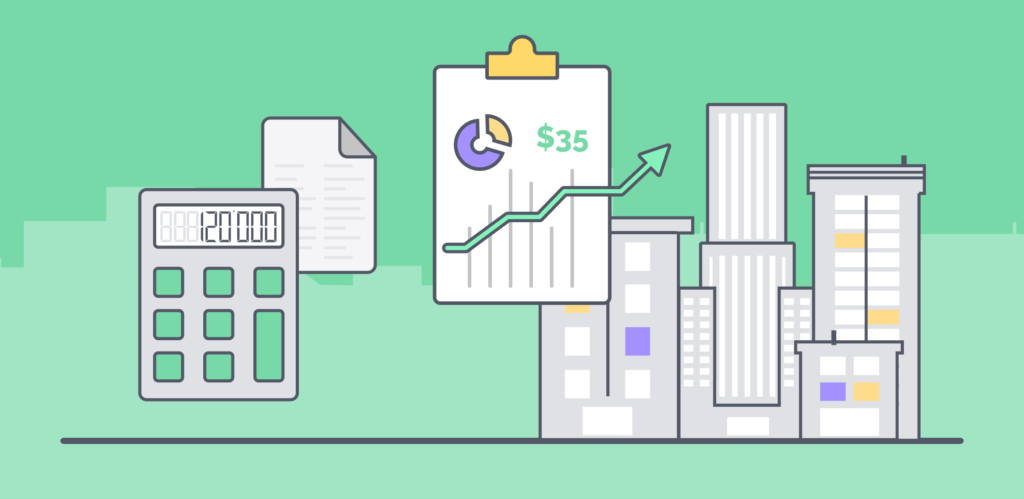As the coronavirus continues to keep people in their homes, uncertainty grows. Millions of renters are unable to pay rent, due to being furloughed or laid off. Even those still employed and earning income face uncertainty: their stocks may have plunged in value, their 401(k) balance may have fallen, they may need to loan savings to nonearning family members, or their business may be losing key clients. As a result, the key theme right now is cash is king. For renters, it’s about: how much savings does one have? Will it last through any COVID-19-related hardships? A huge portion of those savings will pay their rent, but what if there’s not enough? And for landlords, as eviction bans and rent protests increase across the US, it is the answers to these questions that will significantly impact their bottom lines. After all, when renters struggle to pay rent, landlords struggle too.
The long term effects of a short term pause
As shelter-in-place continues, more businesses will close permanently. Unemployment or reduced income will continue to affect renters’ abilities to pay rent. For landlords, they don’t have the ability to defer many of their fixed costs. Rent collection is essential, even if it’s delayed, and landlords need realistic options to help their renters afford to keep a roof over their heads. $1,200 stimulus checks are not big enough to solve this problem, and it is logistically futile for management to attract new, financially-secure renters to replace renters who leave for cheaper rents.
For some renters, they will never pay the rent they defer. Most will catch up, but the economy will not recalibrate quickly, and landlords cannot wait patiently and silently for their entire portfolio to financially recover. They’re losing income, while continuing to pay building staff, maintenance workers and management companies. State and local governments are still relying on landlords to pay their property taxes, and some buildings even have increased costs, for extra cleaning or new health and safety measures due to the coronavirus.
Planning ahead can help slow this domino effect. Especially since nearly 20% of the labor force has claimed unemployment since mid-March, and this number is growing daily.
It’s possible to provide relief
When a renter struggles to pay rent because of the coronavirus, the California Apartment Association recommends that landlords work with an experienced landlord-renter attorney and consider establishing terms for a repayment plan so the renter can keep their apartment. This is not, however, solving the landlord’s immediate cashflow problem. For cashflow, landlords need a capital source that is untapped, plentiful and easily accessible. This source is sitting right in front of us. In the U.S., an estimated $46.5b in security deposits is locked up in escrow accounts. Allowing renters to use their deposit to pay their rent is a viable, fast, and financially responsible solution for all parties.
The four critical reasons for refunding deposits are:
– Minimize delinquencies by releasing deposits and applying them to rent
– Incentivize renewals by refunding deposits to existing renters
– Attract new renters with lower move-in costs
– Enable remote leasing and eliminate checks with Obligo’s online move-in payment solution
For renters
Being able to get one’s deposit back early does one very valuable thing – it puts cash back in circulation. Cash that renters can use to completely, or in large part, cover a full month’s rent. If their deposit is equal to one month’s rent, it is a quick, one-to-one exchange. Renters get their security deposit back, and then immediately use it to pay rent. This gives them a ‘free’ month, where they aren’t forced to tap into their vulnerable or diminishing savings, to cover this expense. For those still in employment, it extends their recovery time should COVID-19 eventually negatively impact their employment, forcing them to rely solely on savings. For those laid off, a lot can happen in a month, and within 4 weeks they can find an income source that ensures they avoid becoming indebted to their landlord, averting financial problems for both parties.
For landlords and management
Refunding security deposits cannot increase exposure for landlords. While it may initially appear as if landlords will lose the ability to recover expenses after a renter moves out, Obligo provides a system to refund deposits safely and securely.
To protect NOI without compromising on security and accountability, each renter must be enrolled in Obligo’s deposit-alternative service prior to receiving their deposit back.
“Security deposits are a huge source of capital that can provide immediate liquidity to families,” said Roey Dor, co-founder and CEO of Obligo. “We want to do everything in our power to help renters keep a roof over their heads, and our technology can help free up this money while maintaining the same level of security for property owners.”
Similar to a hotel check-in, Obligo’s technology enables landlords to be preauthorized to charge renters up to a pre-agreed amount. Renters submit a payment method for pre-authorization, and are only charged to cover specific incidents. Once set up, landlords can refund existing deposits via a secure link that is emailed to each renter. This financial break is simple, quick, and reduces financial strain at no added cost to management. It can even save management companies the accounting and operating costs associated with collecting, maintaining and refunding security deposits, a significant long term saving.
Refunding security deposits shows landlords are doing what they can to help mitigate the current financial hardships brought on by the effects of COVID-19. These financial hardships affect both renters and landlords, and without another viable cashflow alternative available, it is critical that property owners and managers expedite this option. Contact our Partnerships team today to learn more.




